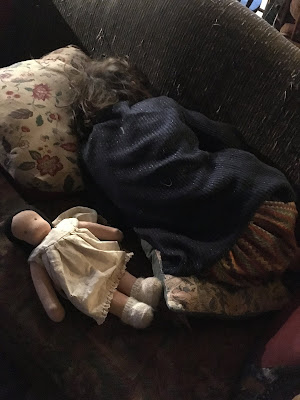Why Begin With Poverty?
Lord, show me Poverty
Whom You loved so dearly.
Merciful Jesus, have pity on me.
I am full of yearning for my Lady Poverty.
I can find no peace without Her.
You, Lord, it was, who first aroused love for her in my heart.
Grant me the privilege of possessing her.
I yearn to be enriched by this treasure.
I earnestly desire that it might belong to me and mine forever.
For Jesus, You were very poor,
And I want to call nothing under heaven mine,
But only to live on what others may give me.
Whom You loved so dearly.
Merciful Jesus, have pity on me.
I am full of yearning for my Lady Poverty.
I can find no peace without Her.
You, Lord, it was, who first aroused love for her in my heart.
Grant me the privilege of possessing her.
I yearn to be enriched by this treasure.
I earnestly desire that it might belong to me and mine forever.
For Jesus, You were very poor,
And I want to call nothing under heaven mine,
But only to live on what others may give me.
First, because Christ praised poverty, and as He saved my soul, I feel inclined to pay attention to those things He praised, particularly if I don’t understand them. According to two Gospels, He praised both actual poverty (St. Luke’s) and being poor in spirit (St. Matthew’s), which is even more perplexing. His followers went on to continue to bless poverty and develop some crucial Church doctrines that have important economic ramifications, such as the Universal Destination of All Goods. And as mentioned, St. Francis, the medieval allegorist that he was, personified Poverty as a beautiful Lady and loved her with a passion. It was Francis’s devotion to poverty that drew my attention to it, as I shall explain.
Secondly, because often housekeeping involves poverty, or at any rate, fear of poverty. Money management is typically studied frantically by those who have made mistakes and need to gain better control over their finances: at any rate, that’s when I start studying it, when my account balances are in the negative.
Thirdly, because I live in what economists used to call a First-World country and the main problem of housekeeping is not scarcity but abundance: glut and clutter are our everyday menaces. In America, if you do nothing, “stuff” will accumulate around you like mold on white bread and eventually overwhelm you. This is because this country is rich and generous, and people love to give. And here, the problem of riches taking over our hearts—or at any rate, too much of our time and attention—is a serious problem. The Scripture warns that the love of money is the root of all evil, and money is the temptress ever-wooing to be let into the heart. I do not want to fall in love with money—and I don’t want my children to either.
Although we fear poverty, we are more in danger of centering our home and our lives around its opposite: maintenance of our wealth or our stuff. Why should our greatest fear be our starting place for home economy? Well, if you are afraid of something, you generally have to pay attention to it. That’s one reason to discuss it. But Christ’s blessing upon poverty intersects that fear to make me wonder if that very object of our anxiety could be our salvation in the end.
This is also because – and here is my final reason for writing this book – our understanding of economics is an ongoing problem, one that Mother Church has called upon lay people to address, time after time after time. In a further chapter, I will give a short history of the Church’s teachings on the economy, explaining why this problem is crucial for us to take apart and figure out at this juncture in history. Solving that problem has remained on the Church’s “Honey Do” list since the advent of the market economy, and someone has to do something about it. I am going to try my hand at it, probably badly, at least so that others can become aware of it.



Comments